Why is the US-Thai alliance treading water?
US President Joe Biden has done a creditable job in upgrading and reinvigorating America's treaty alliances. Thailand, one of Washington's oldest treaty allies in Asia, is an outlier. ISEAS senior fellow Ian Storey examines the reasons why the US is not closer to Thailand, especially in defence.
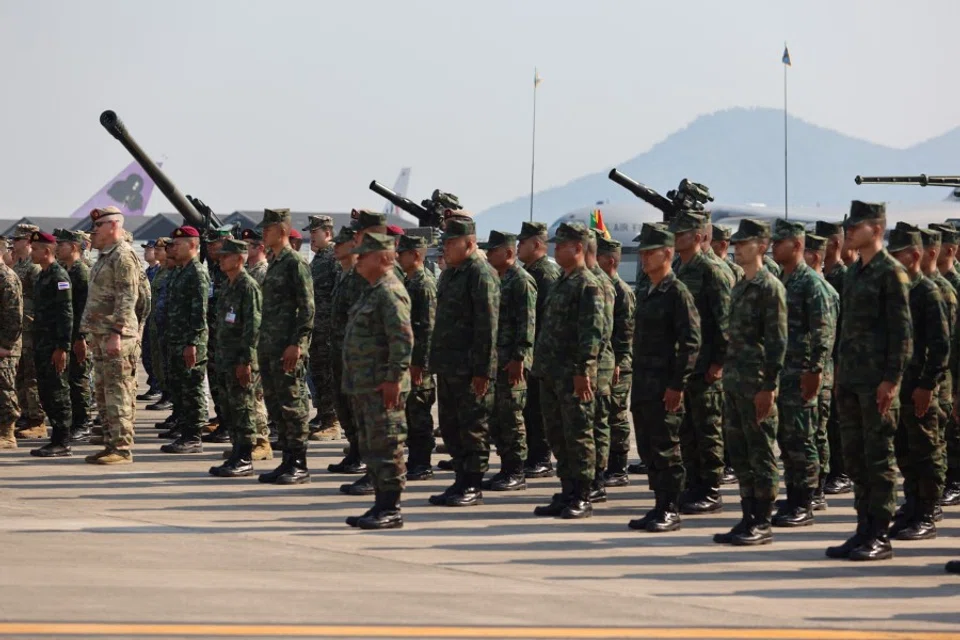
When President Joe Biden entered the White House in January 2021, one of his most important foreign policy initiatives was a pledge to reinvigorate and modernise America's global alliances. More than two years into his term, he has done a commendable job. But there is an outlier in Asia: Thailand. Washington's alliance with the Southeast Asia country continues to tread water. President Biden carried out a deliberate U-turn from his transactional predecessor, Donald Trump, who consistently disparaged America's alliance relationships, such as those with South Korea and Japan.
In Europe, the Biden administration has reaffirmed its commitment to the North Atlantic Treaty Organisation (NATO). Today, the alliance is more united than ever, though that is also due to Russian President Vladimir Putin's war of choice in Ukraine.
In the Indo-Pacific, the US has strengthened its alliances with Japan, South Korea, the Philippines and, through the Australia-UK-US (AUKUS) tripartite security arrangement, Australia.
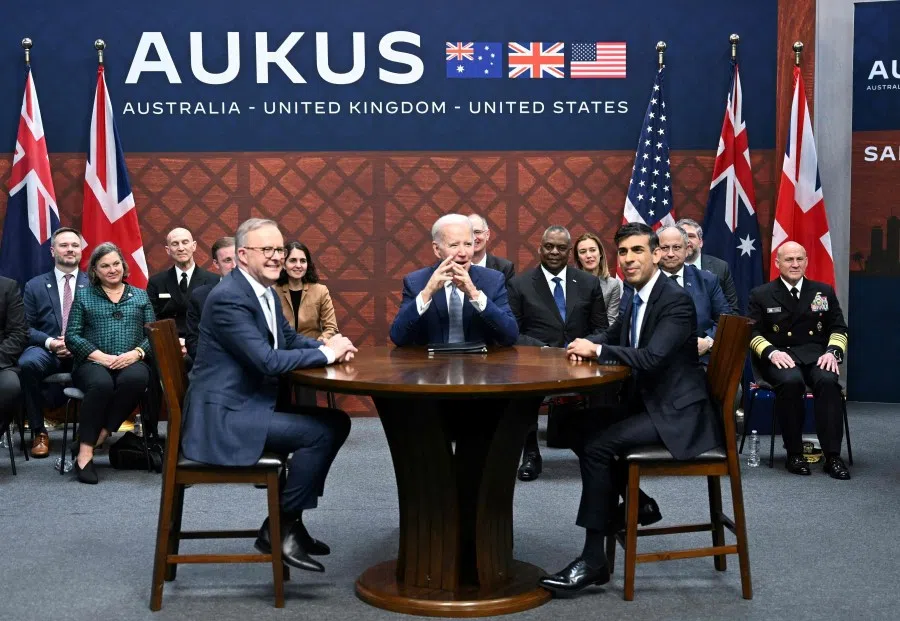
The one exception in the buttressing of America's post-World War Two "hub and spokes" regional defence architecture is the US-Thai alliance, which continues to tread water. Why have Washington and Bangkok failed to reinvigorate and modernise their alliance?
There are two interconnected reasons.
But overall, bilateral ties are cordial, and crucially, Bangkok and Beijing are not engaged in contentious quarrels over territorial disputes.
No common enemy
The first is the absence of a common threat perception. Japan, the Philippines and Australia have become unnerved at China's increasingly muscular foreign policy, and particularly its assertive actions in Asian waters, especially the South and East China Seas. Japan and Australia are also worried about China's sabre-rattling in the Taiwan Strait, and the prospect of a military attack on the island which would inevitably draw in the United States. The logic is that stronger alliances will provide a stronger deterrence to Beijing.
Thailand, on the other hand, is quite sanguine about China's growing regional economic, political and military clout. Sino-Thai relations are not problem-free, and include contretemps over the construction of the much-delayed high-speed rail link in Thailand, China's activities on the Upper Mekong and the engine-less submarines being built for the Thai Navy in Wuhan.
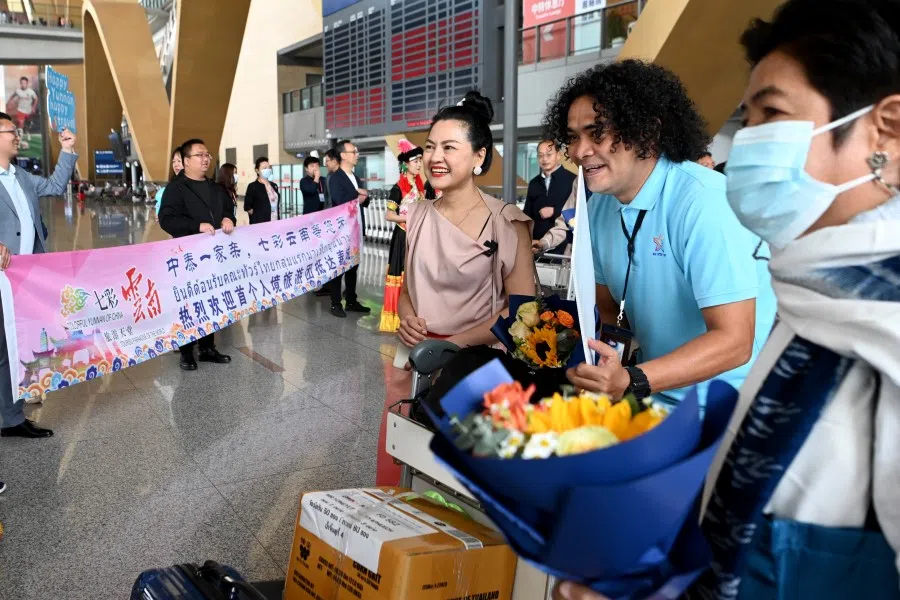
But overall, bilateral ties are cordial, and crucially, Bangkok and Beijing are not engaged in contentious quarrels over territorial disputes. In addition, Thailand does not see itself as a stakeholder in the South China Sea dispute (let alone the East China Sea) or in China-Taiwan relations. For Thailand, its relationship with China is only really all about promoting trade, investment and tourism.
America has endeavoured to revitalise its alliances with Japan, Australia and the Philippines in part because it knows that in the event of a military contingency over Taiwan, it will look to those countries for assistance, including the use of their military bases.
Thailand would almost certainly declare its neutrality and refuse US forces access to its air bases and ports.
In contrast, given its close ties with Beijing, Washington cannot assume that Bangkok would agree to a request for logistical support in the event of a Chinese invasion of Taiwan. As it has done with Russia's invasion of Ukraine, Thailand would almost certainly declare its neutrality and refuse US forces access to its air bases and ports.
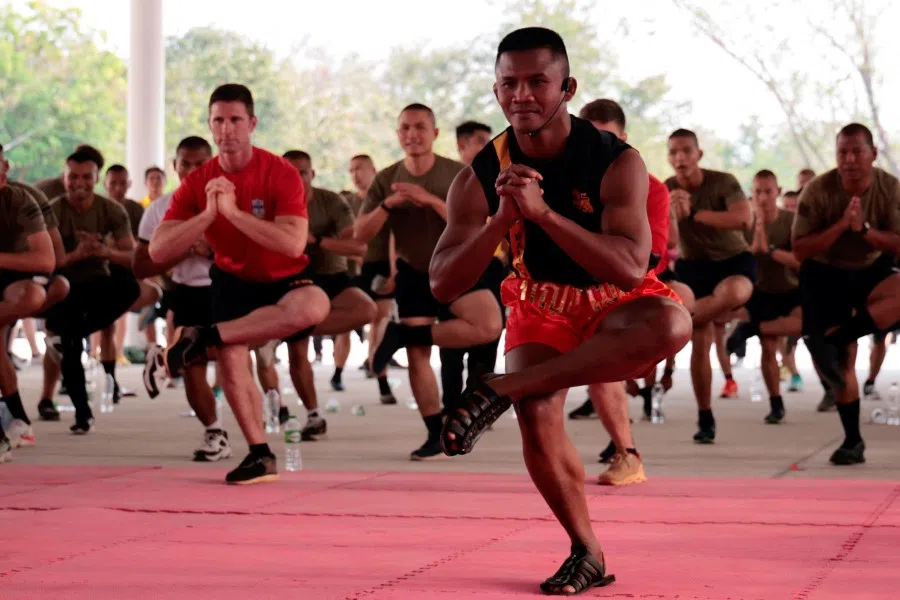
Cognisant of this reality, the US has put very little effort into building closer defence ties with Thailand.
Tellingly, in the Biden administration's 2021 Interim National Security Strategic Guidance, Thailand was not mentioned at all. It was mentioned just once in the 2022 National Security Strategy. Both documents identified China as a threat to the international order and how the US would strengthen its alliances and partnerships to meet that threat.
Close military ties
The second reason why the Biden administration has strategically bypassed Thailand is the country's growing military ties with China.
In the aftermath of the 2006 and 2014 military coups, the US suspended defence ties with Thailand. Feeling miffed and hard done by, Thailand's military leaders looked to China for new kit (including tanks, submarines and surface warships) and stepped up drills with the People's Liberation Army (PLA). Today, the Thai military is the only country in Southeast Asia that holds annual military exercises with all three PLA services.
In 2017, US-Thai military ties were normalised, an act symbolised by coup leader and Prime Minister Prayuth Chan-ocha's meeting with President Trump in the White House.
But since then, there has been little forward momentum in alliance relations. Thailand has bought 60 refurbished Stryker infantry fighting vehicles from the US, as well as a handful of Black Hawk helicopters. But that is small beer for one of Southeast Asia's largest armed forces.
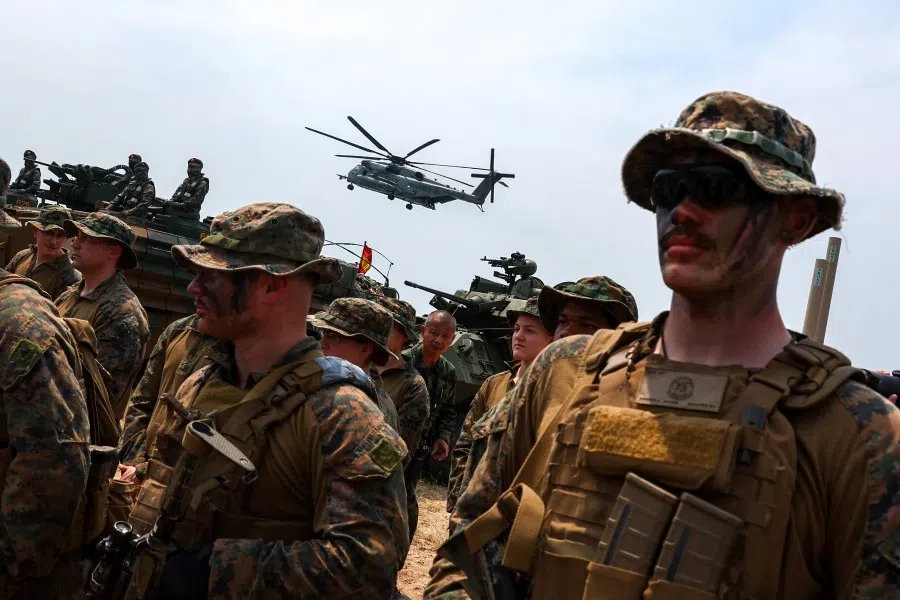
The US and Thai armed forces continue to hold military exercises, including the totemic Cobra Gold drills which are invariably viewed as a barometer of bilateral military ties. The 42nd iteration of Cobra Gold recently ended, and a lot was read into the fact that the US military contributed 3,000 personnel, the highest number in a decade. But far too much was read into this number, as America's contributions to the exercises have waxed and waned since 1982.
... the alliance seems destined to be relegated to the second or even third tier of America's strategic partnerships in the Indo-Pacific.
A more meaningful test case of alliance relations is the Thai air force's request to buy eight F-35A Lightning II, America's top-of-the-range fighter for export. Thailand is still waiting for approval from the US. While Washington might seize this opportunity to advance the alliance by green-lighting the request, it is very unlikely to do so given the rapport between the Thai armed forces and the PLA. The Pentagon will not want Chinese military officers snooping around the advanced fighter jet.
So what is the future of the US-Thai alliance? In short, its future will closely resemble its recent past. Cobra Gold and other exercises will continue, but there will be no major initiatives. As such, the alliance seems destined to be relegated to the second or even third tier of America's strategic partnerships in the Indo-Pacific.
This year marks the 190th anniversary of the establishment of diplomatic relations between the US and Siam, and the two countries will no doubt exchange lots of nice words and wax lyrical about the future. But the yawning gap between rhetoric and reality will remain unspoken.
This article was first published by ISEAS - Yusof Ishak Institute as a Fulcrum commentary.





